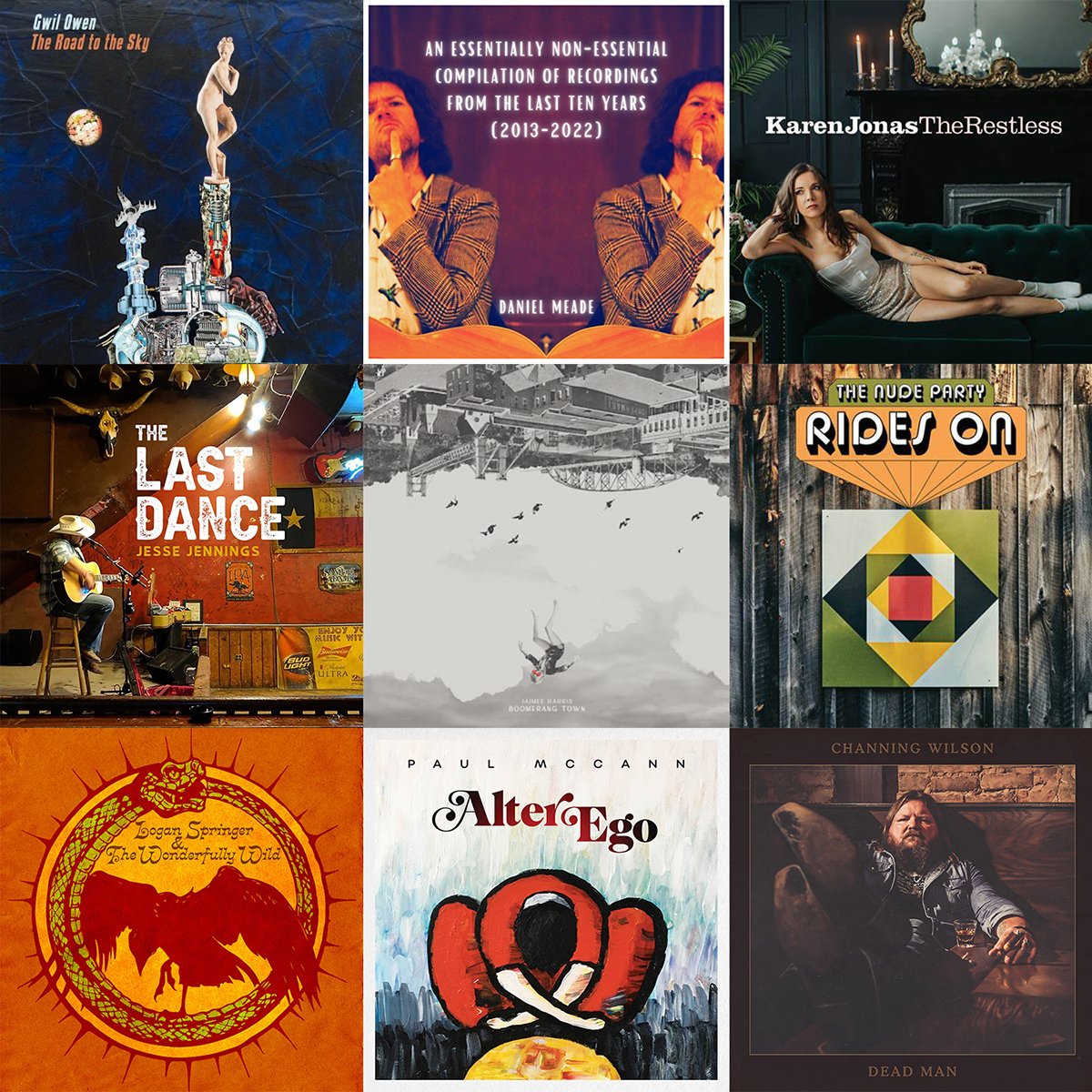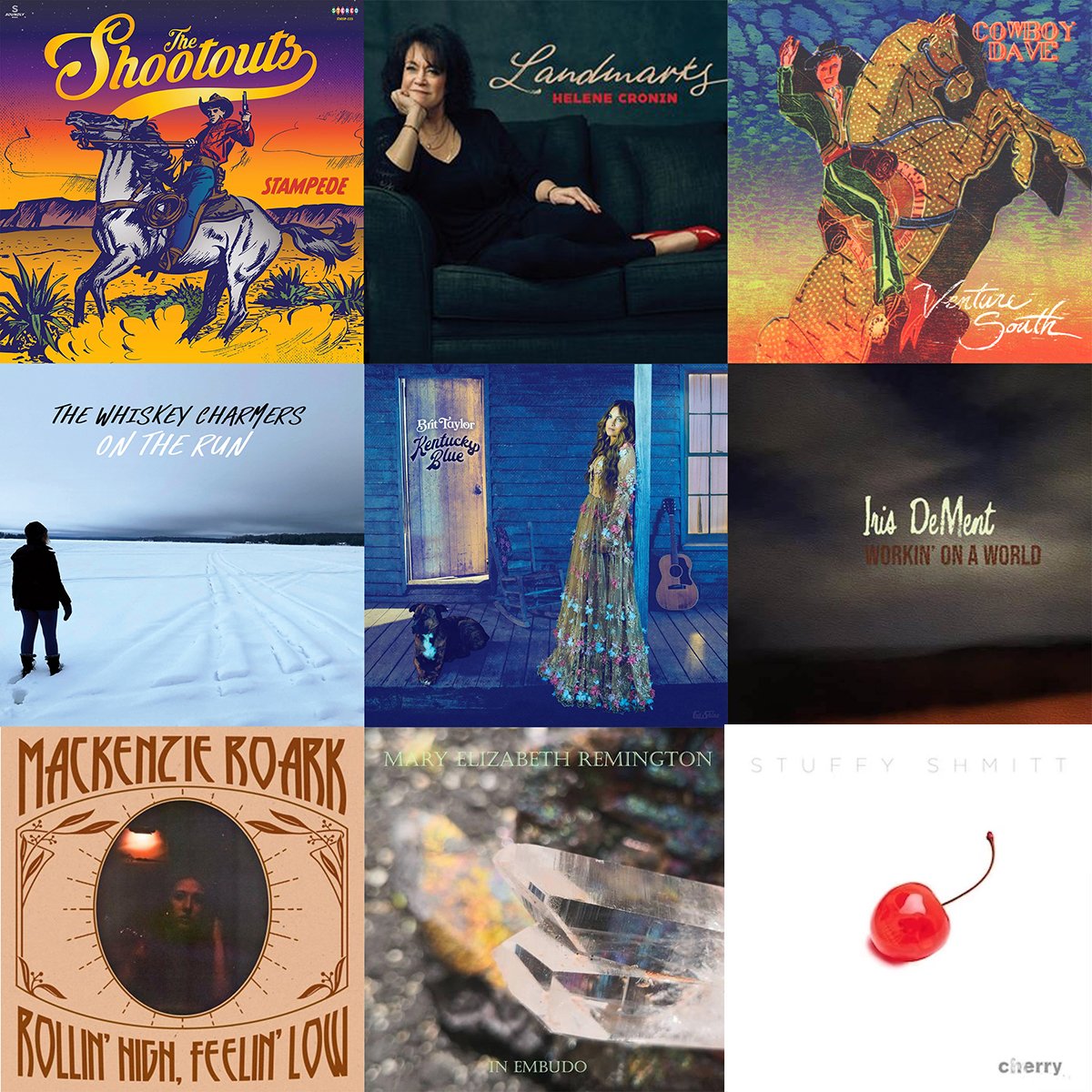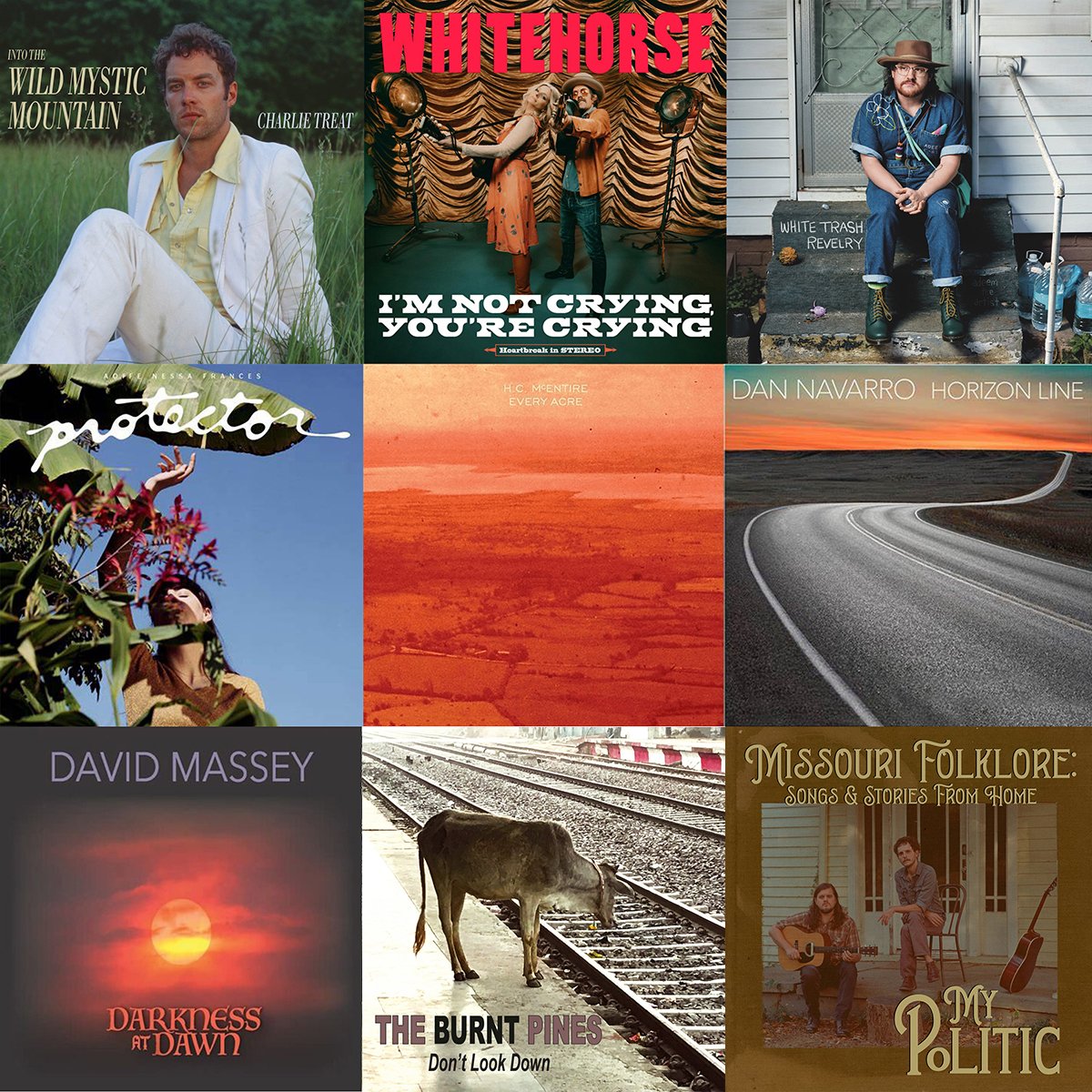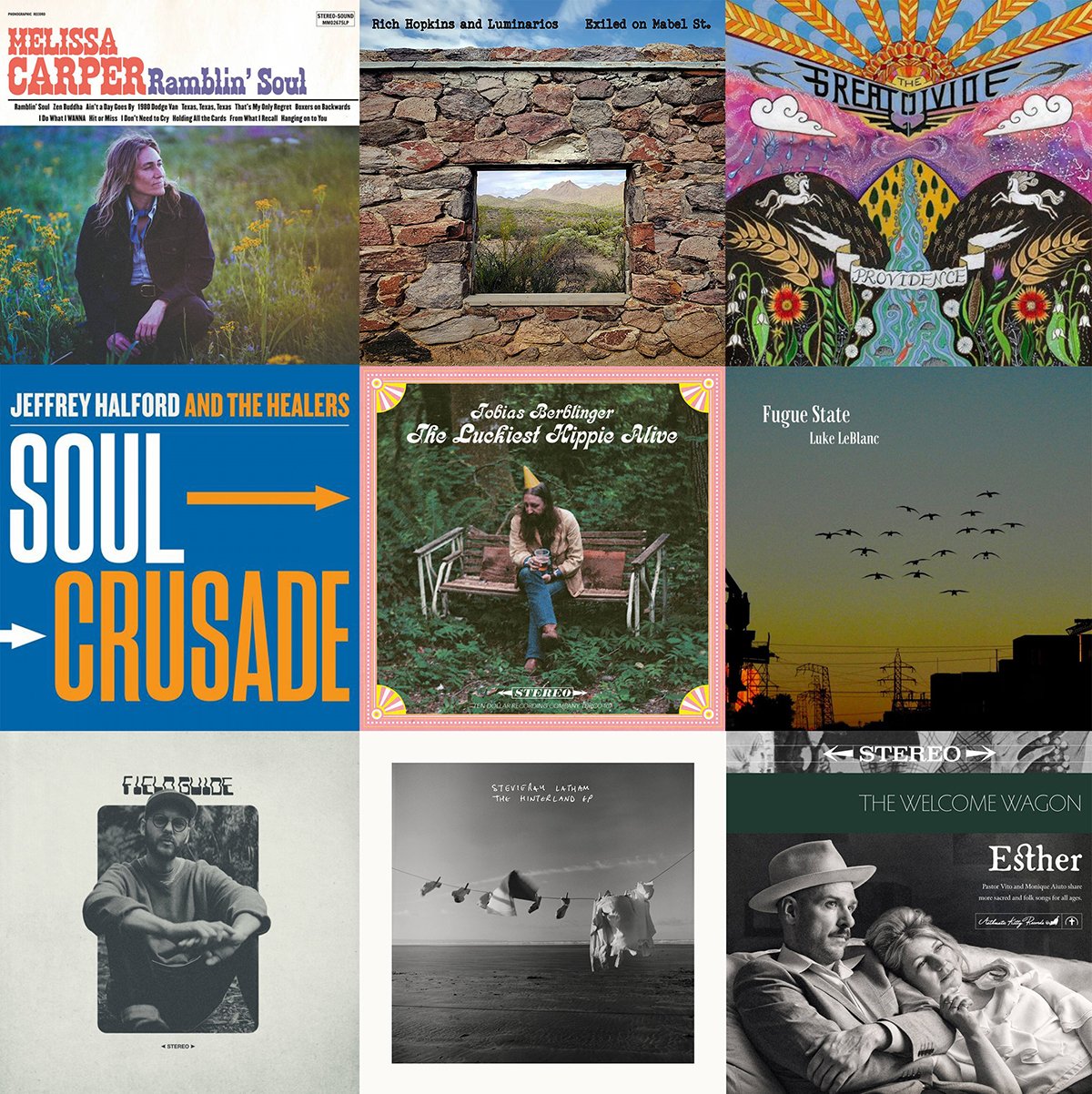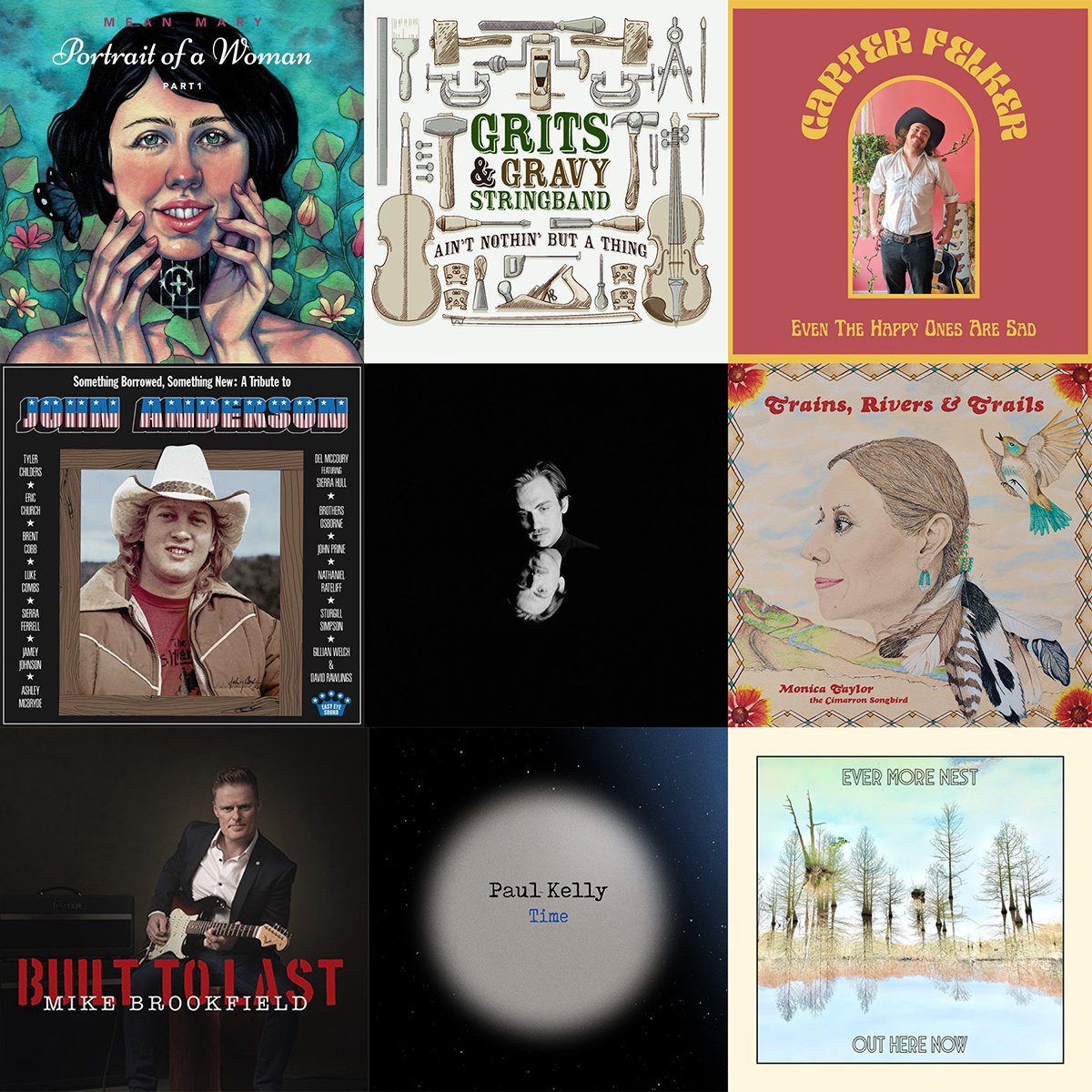Dave Sutherland Last Drop Of Empty Rectifier
After a break of quite a few years, Londoner Dave Sutherland has returned to writing and performing his own material in support of his recently released album, LAST DROP OF EMPTY. On top of this, he was awarded UK Male Country Singer of the Year 2022 by the UKCMA.
Those endearingly world worn vocals are front and centre of the new release, which was produced by two stalwarts of the Americana world, and recorded over some time and in four locations from the US to Sweden, as well as in London. Producer Stacy Parrish is known for his work with T-Bone Burnett and Alison Krauss, among others, and is now working in music education in London. He contributed drums and percussion, guitars, keys, strings and woodwind. The co-producer was Jack Cassady, bass player with Jefferson Airplane and Hot Tuna, who also plays bass throughout.
The ten songs are all penned by Sutherland and are mostly story songs, exploring nostalgic themes and are rooted in his native Greenwich and its surrounds. The overall sound is country, with a large helping of folk and a taste of blues. Sutherland is very close to his Irish roots too (his father emigrated to London from Co Galway) and there’s more than a touch of ‘country and Irish’ in the ballads here. Ever Changing Skyline references the changes in London Docklands and East End in the last few generations, while also recalling summers on ‘an old Irish boreen’. There’s a distinctive Irish flavour too in Down To The Last Drop Of Empty, added to by the accordion of Danne Strahed, which closes the album on an upbeat note. In between, there’s a painful cry for help from a psychologically broken person in the harrowing Damaged, with backing vocals from Moa Drugge. She also duets with Sutherland on the gently swaying love song, Most Of The Things That You Are. Yorkshire Grey, another love song, involving a boxer’s last fight, also features accordion and piano, this time from Sweden’s Gunnar Frick.
Review by Eilís Boland
Amanda Fields What, When & Without Are and Be
I have to admit to being stopped in my tracks on my first listen to this album, the debut full-length recording from Nashville-based, Amanda Fields.
There are recurring themes of insecurity, longing and failed relationships on WHAT, WHEN & WITHOUT - no surprise there, it is a country album. Whether based on fact or fiction the songs unfold like diary entries, incredibly intense yet attempting to avoid any degree of culpability or incrimination. The album’s title is represented by three tracks, the opener What A Fool, the closing track Without You and When I Met You, which is placed in the middle of the album. The sequencing of the tracks throughout is very well considered, each song could very well be a ‘moment in time’ from the same relationship.
The first four songs are classic country, with nods in the direction of Tammy Wynette on both I Love You More Today and the simply gorgeous ‘stir the heart’ break-up song, Diamonds. At this point the expectation may be for more of the same, but things go off in a completely different direction on the aforementioned When I Met You. Leaving behind the calmness and orderliness that went beforehand, it’s a strikingly evocative song complete with hauntingly distorted guitar and layered vocals. Trail Of Unforgiveness, which follows, travels a similar menacing path, indicating that Fields is every bit as adept writing and performing both alternative roots and more traditional country tunes. Calmness is restored on a duet with Cruz Contreras titled Lucky, before a sense of acceptance and moving on is expressed on the previously noted final track Without You.
Hats off to producer Megan McCormick (Allison Russell, Jenny Lewis) and Brandon Bell (Miranda Lambert, Brandi Carlile), who engineered and mixed the tracks. The production on the mid-tempo country ballads is stand out and paced to perfection, Fields crystal clear and controlled vocals are particularly enriched by aching pedal steel guitar by Russ Pahl. Recorded at The Cabin, Nashville, other contributors included Dennis Crouch (bass), Matty Alger (percussion), Ethan Ballinger (guitar, piano), Chris Contreras (piano) and Megan McCormick, who played guitar and added backing vocals alongside her production duties.
Fields’ 2019 single, Brandywine, found her following her Appalachian bluegrass roots but, for whatever reason, WHAT, WHEN & WITHOUT has led her down the classic country chanteuse path. It’s an inspired change in direction and one that has yielded a crescendo hitter in which you are likely to get totally immersed after a couple of spins, I most certainly did.
Review by Declan Culliton
Andy Hedges Roll On, Cowboys Self Release
An interpreter of traditional cowboy songs for nearly two decades, Texan Andy Hedges’ latest collection of Western songs is a continuation of his passion for keeping this often-neglected genre represented.
This double album consists of twenty-two tracks in total and includes a twenty-eight-page booklet, offering notes on the individual songs and quotes from a number of the guest contributors. Those guests include a host of artists close to Hedges’ heart, with the common denominator of an appreciation, understanding and love of traditional Western songs. The contributors are Ramblin’ Jack Elliott, Dom Flemons, Pipp Gillette, Bren Hill, Corb Lund, Waddie Mitchell, Michael Martin Murphy, Brigid Reedy, Randy Rieman, Tom Russell, Rod Taylor and Andy Williamson. Twenty of the twenty-two tracks are duets with the guests, the other two are spoken word by Hedges.
The material covers the full gamut of Western music, from traditional ballads to gospel songs and novelty songs to fiddle led tunes. Scenes from campfires, trail drives, railroad, plantations, and saloons are all unveiled. Together with the quality of the production, musicianship and vocal deliveries on the album, Hedges deserves immense credit for logistically recording such a large number of duets with a wide range of contributors.
Amongst the many standout tracks is Railroad Bill, where a spoken introduction by Ramblin’ Jack Elliott recalls the tale of an encounter he had with Woody Guthrie and Sunny Terry. Other highlights include Desert Sands, which features the exquisite country vocals and fiddle playing of Brigid Reedy and Pitch, You Wild Outlaw, Pitch, with Corb Lund sharing the vocals. Both of the album’s closing tracks, the appropriately titled Palo Duro Farewell and Goodbye Old Cowman, find Hedges’ regular partner in crime Andy Wilkinson playing his part. Tom Russell joins Hedges on Root Hog Or Die and Philadelphia Lawyer is another track which includes the craggy vocals of Ramblin’ Jack Elliott.
Hedges’ last full album, SHADOW OF A COWBOY, was the winner of the Wrangler Award from the National Cowboy & Western Museum for outstanding traditional Western album in 2020. It’s likely that his latest offering will also be the recipient of similar awards and deservedly so. For students and lovers of the Western genre, Andy Hedges’ albums and Chris Guenther’s AMERICAN OUTLAW VOLUMES 1&2 are essential listening and also excellent value for money.
Review by Declan Culliton
Chris Guenther American Outlaw Volume 2 Blackboard
‘AMERICAN OUTLAW VOL.1 opens a door to a musical feast from start to finish. Here’s hoping there are more volumes to follow,’ were our parting words when reviewing that album from Paul Guenther back in 2022. Less than twelve months later and the Washington state singer songwriter and multi-instrumentalist continues his passion for all things country and western with the release of AMERICAN OUTLAW VOL.2. Written, arranged and produced by Guenther, he also performed all the vocals and played the majority of the instruments, with the exception of some of the fiddle parts which are credited to Katie (Keller) McManus.
Sub-titled as ‘Non-fiction Western Music & Spoken Word,’ the ten-track album revisits legends, events and characters from the ‘Wild West’. Guenther’s passion for America’s past is much more than simply casual curiosity, he can boast a degree in History and Agriculture, has previously recorded seven country albums and divides his time between playing with his backing band The Honky Tonk Drifters and weekly solo residencies. Raised on a family farm in southwest Washington, he entered into the world of writing and performing his music at livestock shows and county fairs, before expanding his horizons by forming a band and playing dancehalls. In his younger years, he combined these activities with a parallel role as an agriculture teacher. Two decades later and his enthusiasm for playing and promoting classic country and western music is as strong as ever.
The album opens with an Ennio Morricone-inspired instrumental titled The Brave Line and closes with a celebration of the cattle towns of yesteryear, Ode to the Cowtown. Sandwiched in between the two are eight tracks with historical connotations. We hear of the life and death of outlaw Johnny Ringo in Who Shot Johnny Ringo?, whose death was registered as suicide but legend has it he was shot by Wyatt Earp or Doc Holliday. The bank and train robber Elmer McCurdy, who was gunned down while robbing a train in Oklahoma, has his tale told on The Life & Death Of Elmer McCurdy and Harvey Logan, who was a member of Butch Cassidy and The Sundance Kid’s gang The Wild Bunch, is the subject of the spoken track Harvey Logan. The Battle of Little Big Town - better known as Custer’s Last Stand – is retold on Son Of The Morning Star.
There has been a noticeable resurgence in ‘western’ country music in recent years and in particular, its representation in movie soundtracks. Corb Lund has been flying the flag for the genre for over two decades and artists like Charley Crockett, Colter Wall and Riddy Arman are currently exposing a younger generation to western music. Students and newcomers to the world of this genre, alongside the converted like ourselves at Lonesome Highway, could do a lot worse than investigating this collection of songs. Not only does it offer a gateway into the characters and events of the wild west, it is also a delightful listening experience.
Review by Declan Culliton
Crosby Tyler Don’t Call The Law On Me Bohemia
This album is a look back, to some degree, into Tyler’s long career as a 30 year veteran. Those years have provided a lot of different life lessons and continue to do so. He has been a frontman as well as a collaborator and has honed the writing and vocal skills that are apparent on this new album - one he declares his “most countryish to date”, something borne out as one listens to the music here.
Tyler produced the album and found a talented crew to help with its recording and song realisation. Dale Daniel and Jeff Turmes are the capable rhythm section. Aubrey Richmond adds her fiddle and back-up vocals, as does Kimbra West. The lead and pedal steel guitar are courtesy of Mike Khalil, while Tyler fronts with acoustic guitar and vocals. It’s a team that brings their talents to making an album that feels right.
The songs move from reflections on traveling down long white-line highways, such as in Trucker On The Road and 18 Wheels of Steel, to a set of life realisations from varying points over a lifetime seen in Born A Bad Boy or Stop Being An Ol’ Redneck. Then a certain lifestyle choice is presented with Peace Love And Beer and Bilkers, Hippies And Honky-Tonkin’ Cowboys.
The ten songs are all down to earth in overall frame of reference, which doesn’t allow for any opaque poetry but rather lays down the stories straight, while employing a decent melody and chorus to give the song the necessary connection to the heart of the theme. These often look at the fringes of a segment of society that may feel forgotten or lost or certainly one that has its troubles. This is done, it has to be said, with a certain amount of humour underlying the reality of that situation. The overall production is largely upbeat, uptempo and up front.
Some of the other songs are, however, a reflection of a long career in music, especially in the camaraderie shown in The Family I Never Had which recounts the way his band mates lived, played and slept together (often in their cramped van) while playing small venues all over the States. That they never made it big was not the important factor, it was the connection they forged together that mattered. This is the story of a very large proportion of those making music for (what could pass for) a living.
That sense of belonging, but not being a part of a normal existence, is also considered in the final song Us Black Sheep Ain’t Like The Others, concerning a group of people who are singing to a different hymn-sheet but who are, never-the-less, enjoying the song. This ethos sums up the album and Tyler’s outlook on what is a spirited and ‘outlaw-ish’ take on honky-tonk heartbreak, hangovers, high points and hindsight.
Review by Stephen Rapid
The Lowest Pair & Small Town Therapy Horse Camp Delicata
The Lowest Pair is an American folk band that formed in 2013 and consists of dual banjoists, Kendl Winter and Palmer T. Lee. They have released six albums to date. Separately, Small Town Therapy is a collaboration between multi-instrumentalists Adam Roszkiewicz and Leif Karlstrom, who play also with the band Front Country and have released two albums to date. Together, the four musicians found themselves at a horse camp in Gifford Pinchot National Forest Washington State, in 2020. With no touring commitments, due to Covid restrictions, they decided to collaborate on this project, aptly titled Horse Camp, and the eleven songs are very appealing.
There are five instrumental pieces, all of which highlight the superb interplay and musicianship. The gentle opener This House displays a lovely melody and the understated playing of Winter (guitar), Lee (banjo), Karlstrom (violin) and Roszkiewicz (guitar). The fluid understanding between the musicians results in some superbly nuanced interchanges and the soaring violin of Karlstrom features on six of the songs, lifting the arrangements to new heights.
The blending of guitar and mandolin on songs Oak Leaf and Dandelion Tides compliments the dual banjo playing among the four players and is particularly impressive. The instrumental prowess on songs Dark Divide, Escape From Yellowstone and Tongue Mountain ranges from the quietly contemplative to the impressively dynamic in the playing and rhythm, with the use of trumpet on Tongue Mountain an inspired addition to what is akin to a traditional Irish air.
The music also features Charlie Muench on bass (two songs), Bart Budwig on trumpet (one song), Erin Youngberg on bass (one song) and Tony Sales on drums (one song). All in all, this is a project to celebrate the joy of creative collaboration and the four musicians have hit upon a formula that certainly points towards a return to the recording studio at a future date.
Review by Paul McGee
Turn Turn Turn New Days From An Old Sun Simon
This is a second album from musical trio Barb Brynstad (bass/vocals), Savannah Smith (guitar/ vocals), and Adam Levy (various guitars, banjo, mandolin, organ, synth, glockenspiel, piano, percussion and vocals). They are based in Minnesota, and the album was recorded and produced by Adam Levy at Yvelmada Studio, Saint Paul MN. It steers very much in the direction of pop-infused, radio friendly songs. The three-way harmonies are very much part of their overall sound and there is also a strong influence of psychedelic rock in the fuzz tone guitar inclusions.
The album was released in late January this year and tends toward a somewhat crowded dynamic in the production, with the instrument and vocal tracking leading to a cluttered listening experience. Also, the lyrics can be very obscure with seemingly unrelated images linked together and little insight into the original intent. The title track has beasts and priests facing off against one another in some kind of mythical tale that only confuses.
If You’re Gonna Leave Me is a song that captures something of the different styles featured across the eleven songs. It’s a soulful arrangement and features a message that drives a lot of relationships “We forget all the things we want to remember and we remember all the things we’d rather forget.”
Taking your band name from an iconic Pete Seeger song can be considered something of a risk. Added to that the fact that the Byrds covered the same song with an iconic rendition of the 1960s psychedelia sound, it leaves the impression that this current band are trying to follow in the footsteps of big shoes. However, the lasting impression is not one of real substance, rather a commercial focus in the song writing that visit a few musical genres, wrapped in a big production ribbon.
The opening songs Stranger in a Strange Land and Powder lay the foundations for what follows and are prime examples of the busy arrangements being too layered and lacking nuance. The underlying themes of a girl out of control and of being lost and lonely are somewhat lost in the mix. The words speak of “emptiness and suffocating needs” but the shrill production quality takes away from the message.
On the more dialled-down tracks the arrangements allow for greater space and the songs benefit from the uncluttered approach. Dopamine Blues, a recent single and Seven Kids are two prime examples. Also, the slow groove of My Eyelids Weigh Mountains with its grandiose lyrics and sense of unrequited love includes a great guitar dynamic, something that should feature more on their future arrangements. Equally, the Stones vibe on Towards the Light points to a more earthy sound that could be explored as this band searches for a more defined identity.
Review by Paul McGee
The Zephyrs For Sapphire Needle Acuarela
Welcome back, to a band that has always captured the imagination. Formed in the late 90s by brothers Stuart and David Nichol, a fine run of early albums straddled the twin genres of shoegaze rock and alt-country leanings in their music. Never destined to be household names, the band survived some early setbacks with record deals and label closures, to be offered a new deal by Spanish label, Acuarela. The Nichol brothers remained as constants in an ever-revolving line-up and from the debut album in 1999, they went on to release a further four albums between 2001 and 2010. Always admired for their superb sense of melody and dynamic musicianship, the band has remained very popular as one of those celebrated ‘under the radar’ acts that deserved greater media exposure.
So, here we are in 2023 and the release of a new album is something to celebrate among the hard-core admirers of the band. It’s the first release for fifteen years and the great news is that the band sound as good as ever. Stuart Nicol (guitar, vocals), David Nicol (bass), Robert Dillam (drums), John Brennan (guitar) and Will Bates (keyboards) make up the current line-up and their interplay across the ten tracks is quite something. It’s the kind of album that bears repeated listening, offering up new delights each time and building into quite an achievement. Just short of forty-five minutes the sound is created in tandem with long-time producer Michael Brennan at the Substation studios in Rosyth, Scotland.
Whether you enjoy a country-folk influence or the more up-tempo psychedelic arrangements, this album has the lot. There is also a terrific spaghetti western instrumental to close the album and leave you wanting more. The gentle folk leanings of Snowline references Sisyphus and the mistakes that we make in behavioural repetition. God Loves A Trier is heartfelt and slow, a song that channels regret. The sweet melody of Blue In the Face hides the relationship woes in the words and the subject of difficult relationships is also looked at in Can’t Tell Us Apart.
The bigger sound on songs like the instrumental December, Bolder, and Aliens take things up a few notches and the superb melody on How Have You Been Today delivers a slow release in a song that examines a depressive state. So much to enjoy and such a strong statement from a band that may finally start reaping the rewards that are long overdue.
Review by Paul McGee
James Deely This Train Is Running Out Of Track Self Release
Born in Washington, DC, James grew up in New Jersey where he embraced the local music scene, inspired by the sounds of Southside Johnny and Bruce Springsteen. He formed his band, The Valiants, in the mid-80s and they released several albums over the following years. Their vibrant sound was embraced in the Long Beach to Asbury Park circuit and they expanded their regular shows to include Philadelphia and New York City. The lack of a supporting record label and a recording contract was something that halted progress and James saw his momentum stall in the music business before returning with a couple of excellent albums in 2016 (A HARDER ROAD) and 2018 (WHAT IF WE’D NEVER MET?).
Two compilation albums were also released along the way, with WASTED TIME appearing in 1991 and more recently, OUTTAKES, REMAKES, AND MISTAKES in 2019. The musical quality has always been self-evident and now we are given a second shot at embracing this superb songwriter and musician with the release of a new album. The aptly titled THIS TRAIN IS RUNNING OUT OF TRACK is the perfect way to announce your return and the lyrics reflect the memory of those early days and the journey taken in between “Someday we'll be together again, out past the blue skies and wild winds, and no more tears will fill our eyes, there're be no more painful goodbyes.” The celebratory sound is infused with some dynamic guitar playing and a great rhythm section.
James comes from very proud Irish American roots and he celebrates his ancestors who left Ireland back in the 1800s with a song in memory to his grandfather. Streets Of Dublin is a fine story-song that reflects the local characters that James met on his travels in Ireland, retracing his ancestors’ footsteps and the history of famine and revolution that resulted in so many leaving for hopes of a brighter future.
Although the players are not individually identified, the spirit in the songs is very much one of celebration with the ensemble delivering some quality musicianship. James did welcome back some old pals in the shape of James Michael Devaney (drums), Chuck Manich (bass), Bruce Tunkel (guitar/keyboards), PK Lavengood (guitars), Eddie "Kingfish" Manion (saxophones), Layonne Holmes (vocals), Lisa Lowell (vocals), Eric "Roscoe" Ambel and many more who contributed to the recording process.
American Heart is an instant classic and one that deserves a wide audience to acknowledge the song-writing prowess, with words like “And this American heart is twisting in the wind, and the things we hold dear, are on the line again.” It is a plea for community in the divisive state of division the USA faces and that James experiences today. The ten songs revolve around the themes of hope, loss and redemption with the abiding message of tracks like Prisoners Of Ourselves and Just Out Of Reach looking at the people we have become and the way that life sometimes throws up second chances.
House Full Of Memories and Another Night Alone are reflections of the past and how memories can shape the future. Death of a loved one features in His Time Is Coming with the lines ‘Oh Momma did he say where he’s bound, Be still child, he’s just going to see some old friends.’ Separately, on the song Until the End, James reflects upon growing up “Daddy tell me before I leave, Am I the man that you dreamed I would be, and Daddy tell me before I go, did you teach me the things I should know.”
There is also a great cover version of the Steve Earle song Even When I’m Blue and James has certainly delivered a very fine album that he can be proud of. Currently living in Los Angeles, the spirit of his roots in New Jersey shine through and the old musician friends that helped create this excellent album have reignited a lot of quality and old joys revisited. Well worth your time folks!
Review by Paul McGee


